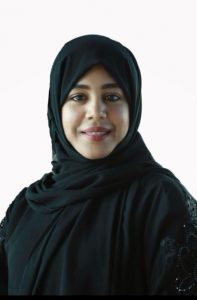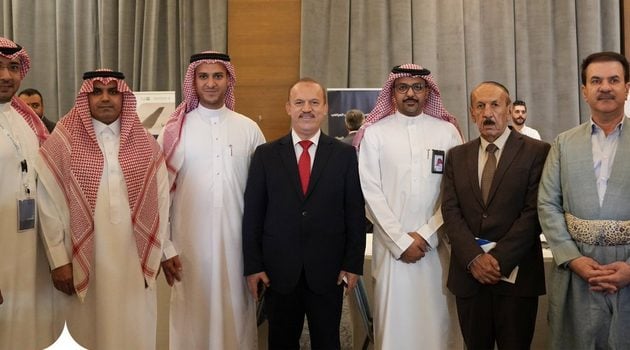The global halal integrity in trade has reached a major milestone in 2020, with the members of the International Halal Accreditation Forum (IHAF), the world’s first halal international accreditation network, heading the list of top halal food exporters.
The top five nations exporting to Organisation of Islamic Cooperation (OIC) countries are Brazil at $16.2 billion; India at $14.4 billion; USA at $13.8 billion; Russia at $11.9 billion; and Argentina at $10.2 billion, according to the State of the Global Islamic Economy Report 2020-2021—an annual study produced by US-based research company Dinar Standard and supported by Dubai Islamic Economy Development Centre.
All these countries are members of IHAF, reflecting its success in ensuring halal integrity in the global marketplace despite the impact brought about by the coronavirus disease (COVID-19) pandemic.
IHAF — an independent, non-government network of accreditation bodies which aims to harmonise accreditation practices in halal — currently has 38 accreditation body-members and stakeholders from 35 countries across six continents.
Her Excellency Dr Rehab Al Ameri, Secretary-General of IHAF said that Islamic countries are dependent on Islamic imports, hence there is a need for halal certification and accreditation in food production and logistics industry. IHAF ensures this integrity is maintained through harmonising halal standards amongst members.
Dr Al Ameri said: “The top food exporters to Organisation of Islamic Cooperation (OIC) countries are non-OIC-countries. To cement the integrity of halal, and to ensure that the halal products consumers are buying are truly halal, utmost standards across different countries and regions should be enforced. IHAF plays a major role as we harmonise accreditation practices in halal field globally, which leads to achieving our ultimate goal of facilitating halal trade worldwide, thereby improving the countries’ economy.”
Despite the pandemic, IHAF has stood by its commitment to serve halal businesses and the industry as a whole, through supportive and innovative services that are aimed at streamlining the unification of halal standards. In the year 2020, the Forum’s initiatives had focused on strengthening its membership globally, building a robust digital infrastructure and injecting essential tools and education for the halal sector while fostering stronger collaborations.
IHAF upgraded National Centre for Accreditation (NCA) ? Kazakhstan to Full Member and welcomed Cambodian Accreditation National Council (DA?CANC) – Cambodia as its newest Affiliate Member.
It held key meetings including the 7th Board of Directors meeting that discussed achievement reports and strategies for 2020 to 2024 and the Multi-lateral Recognition Arrangement Committee (MRAC) meeting, which tackled ways on how to continue the peer-to-peer accreditation exercise in consideration of the limitations brought about by the pandemic.
Building a robust digital infrastructure
IHAF stresses the need for a digital transformation to solidify remote assessments as well as allow remote auditing for a general framework to ensure business continuity. In addition, it also launched its new digital infrastructure with a new and improved website that comes with members’ web application and a member’s management system to ease the processes between its members and IHAF.
The new digital infrastructure consists of a new brand and dynamic website, with an automated members’ management system and members’ web application. The application, which can be accessed through www.ihaforum.ae, is a progressive leap, allowing for real-time interactive communication between IHAF’s members.
Members can efficiently process all their requests digitally, while prospect members can apply online with ease. The new website and web application will also include an automated voting system that will approve all submissions, helping speed up the process of new memberships as well as requests from existing members.
Collaborations, educating the halal sector
The mobility restrictions caused by the COVID-19 crisis increased the urgency of fostering a stronger collaboration within the industry. Amongst the things undertaken by IHAF to showcase its commitment to collaboration in order to promote harmonisation of halal standards include its participation in the Gulf Food 2020, the largest and longest-running food and beverage show in the world, held in February 2020 in Dubai.
It also hosted a webinar titled “The Future Perspectives of The Halal Industry”, which discussed ways to resolve the challenges faced by the halal trade industry today, including remote assessments.
The Forum also participated in the Global Islamic Economy Summit, the world’s largest forum dedicated to the Islamic economy held in July 2020, wherein it underscored measures to address the opportunities and challenges facing the sector due to COVID-19. It also took part in the 5th Global Halal Industry Platform that stressed the importance of developing ISO-level halal standards to capitalise on the Islamic economy, as well as a global seminar on best halal norms hosted by the Polish Embassy.
Effective leadership rewarded
 Dr. Al Ameri’s persistent efforts to lead the halal sector also earned her a prestigious accolade at the “Emirates Women Award 2020” as the winner for the Strategic and Financial Planning – Professional Category.
Dr. Al Ameri’s persistent efforts to lead the halal sector also earned her a prestigious accolade at the “Emirates Women Award 2020” as the winner for the Strategic and Financial Planning – Professional Category.
The Emirates Women Award aims to recognise the country’s women from diverse fields of business and technology who made a mark in their respective careers or businesses. It inspires and encourages the future generation of women to achieve their true potential by empowering their status in society.
“As the Secretary-General of IHAF, the first international accreditation entity to be based in the UAE, this recognition is a nod to our commitment to be at the forefront in solidifying the business processes and incorporating essential tools that will support the halal industry globally and equip the industry with standardised halal criteria to reach that goal,” Dr. Al Ameri added.
About the International Halal Accreditation Forum
The International Halal Accreditation Forum (IHAF) is an independent, non-government network of accreditation agencies all mandated to enforce halal standards in their countries and regions. IHAF is the world’s first halal international accreditation network. It is also the first international accreditation entity to be based in the UAE. IHAF currently has 38 accreditation body-members and stakeholders from 35 countries across six continents.
Empowered by its aim to protect the growing number of halal consumers and to facilitate international halal trade, IHAF establishes a solid ground for the global industry of halal food and non-food products. Based in the UAE and spearheaded by the Dubai Islamic Economy Development Center (DIEDC) and the Emirates Authority for Standardization and Metrology (ESMA), IHAF is anchored on the belief that greater cooperation among regional and international organizations is key in creating a halal industry that is strong, stable, reliable and responsive to the needs of consumers and businesses across the world.
For your information – IHAF currently has 38 accreditation body-members and stakeholders from 35 countries across six continents, including: American Association for Laboratory Accreditation (A2LA-USA), American National Standards Institute (ANSI-USA), Italian National Accreditation Body (ACCREDIA – ITALY), Emirates International Accreditation Center (EIAC-UAE), Emirates National Accreditation System (ENAS – UAE), Egyptian Accreditation Council (EGAC) (Egypt), Entidad Nacional de Acreditacion (ENAS-Spain), Development of Accreditation Programs (DIDAC) in National Metrology, Quality and Technology (INMETRO-BRAZIL), GCC Accreditation Center (GAC-GCC), Joint Accreditation System of Australia and New Zealand (JAS-ANZ-Australia, New Zealand), National Accreditation Board for Certification Bodies (NABCB – India), National Accreditation Authority – (NAH – Hungary), Entidad Mexicana de Acreditacion, a.c. (EMA – Mexico), National Bureau of Agricultural Commodity and Food Standards Ministry of Agriculture and Cooperatives – THAILAND, Philippine Accreditation Bureau (PAB – Philippines), Pakistan National Accreditation Council (PNAC-Pakistan), Argentine Halal Acreditation Agency – (AHAA – ARGENTINA), United Kingdom Accreditation Service (UKAS-UK), Jordanian Accreditation System (JAS – JORDAN), Jamaica National Agency For Accreditation, International Accreditation Service, Saudi Accreditation Committee (SAC-SAUDI ARABIA), Russian Federal Service for Accreditation (RusAccreditation- Russia), Komite Akreditasi Nasional ,Kyrgyz Center of Accreditation ,Belarusian State Center for Accreditation (BSCA –Belarus), Executive Agency – Bulgarian Accreditation Service (EA-BAS –Bulgaria) ,Costa Rican Accreditation Entity (ECA –Costa Rica), Japan Accreditation Board (JAB –Japan), National Center of Accreditation (Kazakhstan), Korean Accreditation Board (KAB –Korea), Libyan Accreditation Center, Moroccan Accreditation Service (SEMAC), Nigeria National Accreditation Service, Accreditation Affairs Section- Public Authority for Industry (KAAS-KUWAIT), ONAC, Sudanese Accreditation Council (SDAC –Sudan), and Department of Accreditation –Cambodia Accreditation National Council (DA-CANC).


